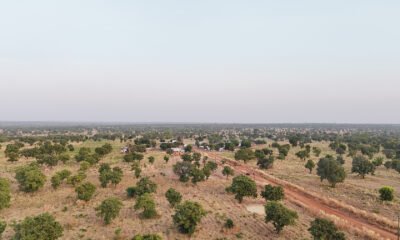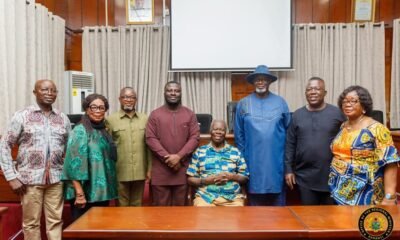News
IBEC-2025: RMU Ag. VC calls for innovative, inclusive strategies to accelerate Blue Economy growth
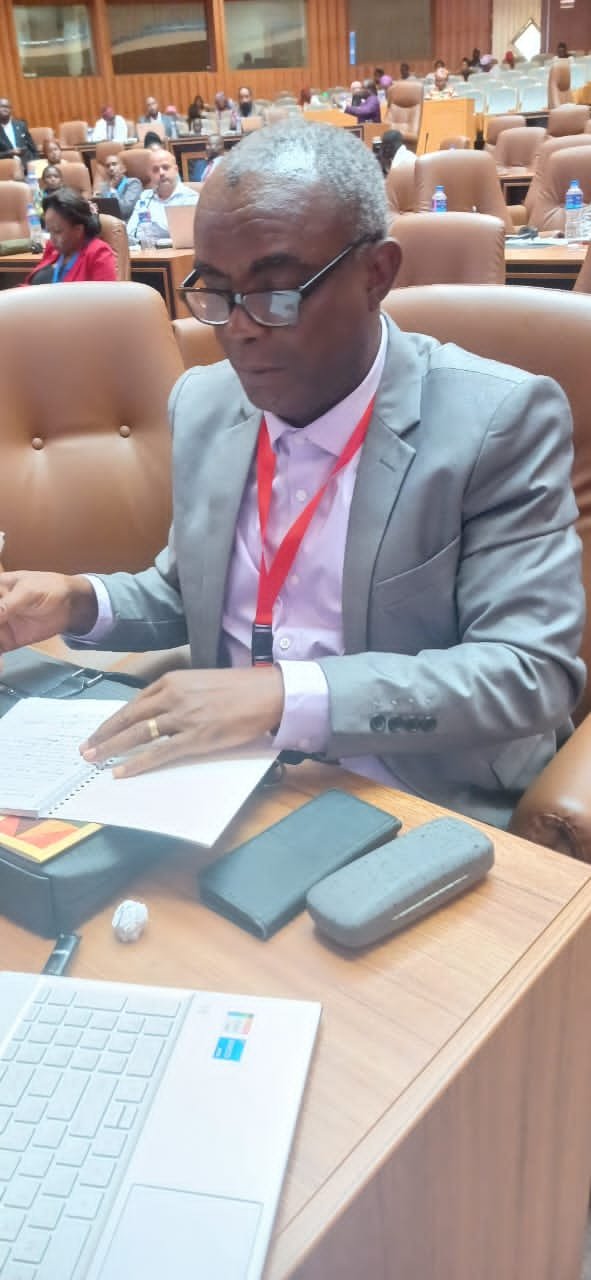
The Acting Vice Chancellor of the Regional Maritime University (RMU), Dr. Jethro W. Brooks Jr., has called for broader engagement among stakeholders within the sub-region to fully harness the potential of the blue economy.
Speaking at the opening ceremony of the second International Blue Economy Conference (IBEC-2025) currently underway in the Republic of The Gambia, he emphasised the need for industry players to be innovative and collaborate effectively to capitalise on opportunities within the ocean.
The three-day conference, which began on Wednesday, February 19, and is scheduled to conclude today, Friday, February 21, has brought together over 200 international stakeholders to exchange ideas on promoting the blue economy and fostering development across the continent by tapping into industry prospects.
The conference is being held under the auspices of the Ministry of Transport, Works, and Infrastructure of The Gambia, in collaboration with RMU in Accra and the Dar es Salaam Maritime Institute (DMI) in Tanzania.
Under the theme “Harnessing the Blue Economy: Leveraging for Innovative and Sustainable Development,” the conference has attracted high-profile delegates from the host country, The Gambia, as well as participants from Tanzania, Liberia, Sierra Leone, Nigeria, Ghana and other nations.
Among the dignitaries present were the Vice President of The Gambia, Muhammad B.S. Jallow, who officially opened the three-day event, the Gambian Minister for Transport, Works and Infrastructure, Mr. Ebrima Sillah, as well as several other Ministers of State.
In his remarks, the Ag. Vice Chancellor of RMU, Dr. Brooks Jr., stated that the blue economy focuses on leveraging oceanic resources to drive economic development while maintaining environmental sustainability.
“Our vision to utilise ocean resources for economic development in the sub-region can only be realized through innovation, collaboration and a commitment to sustainability,” he said.
While emphasising the importance of development through the blue economy, he also stressed the need for environmental sustainability.
“We must ensure that our development does not come at the expense of the environment. Therefore, we need to engage in practices that protect our water bodies, climate and the entire environment for future generations,” he added.
Dr. Brooks highlighted the critical role that RMU and other educational institutions must play in research and training for a sustainable future.
He also emphasised the importance of leveraging technology and innovation while prioritising the wellbeing of the ocean.
“A strong blue economy must ensure conservation, equity and inclusivity. It is vital to adopt a long-term approach that ensures the blue economy we develop today leaves a lasting legacy for tomorrow,” he stated.
“Let us come together to harness the potential of the blue economy for the benefit of the ocean, the people, and the climate,” he urged.
Dr. Brooks commended the organisers and sponsors for their efforts and expressed optimism for a brighter future with a focus on the blue economy.
Key presentations at the conference included topics such as the Blue Justice Approach to Blue Economy Policy Development and Implementation to Safeguard Small-Scale Fishers in Africa, Digital Transformation of the Blue Economy, Food Safety Concerns: A Priority in the Blue Economy, Aquaculture Innovation: Sustainable Practices for the Future of Seafood and Livelihoods, and Ocean Governance: Policy for Sustainable Blue Economy Development.
Additional topics included Climate Change Adaptation and Mitigation: Legal Instruments of Climate Change on Marine Environments and Coastal Communities, Ensuring Marine Safety and Security, and Sustainable Fisheries Management.
News
Mrs Dotse-Ametsi installed as Devt Queen
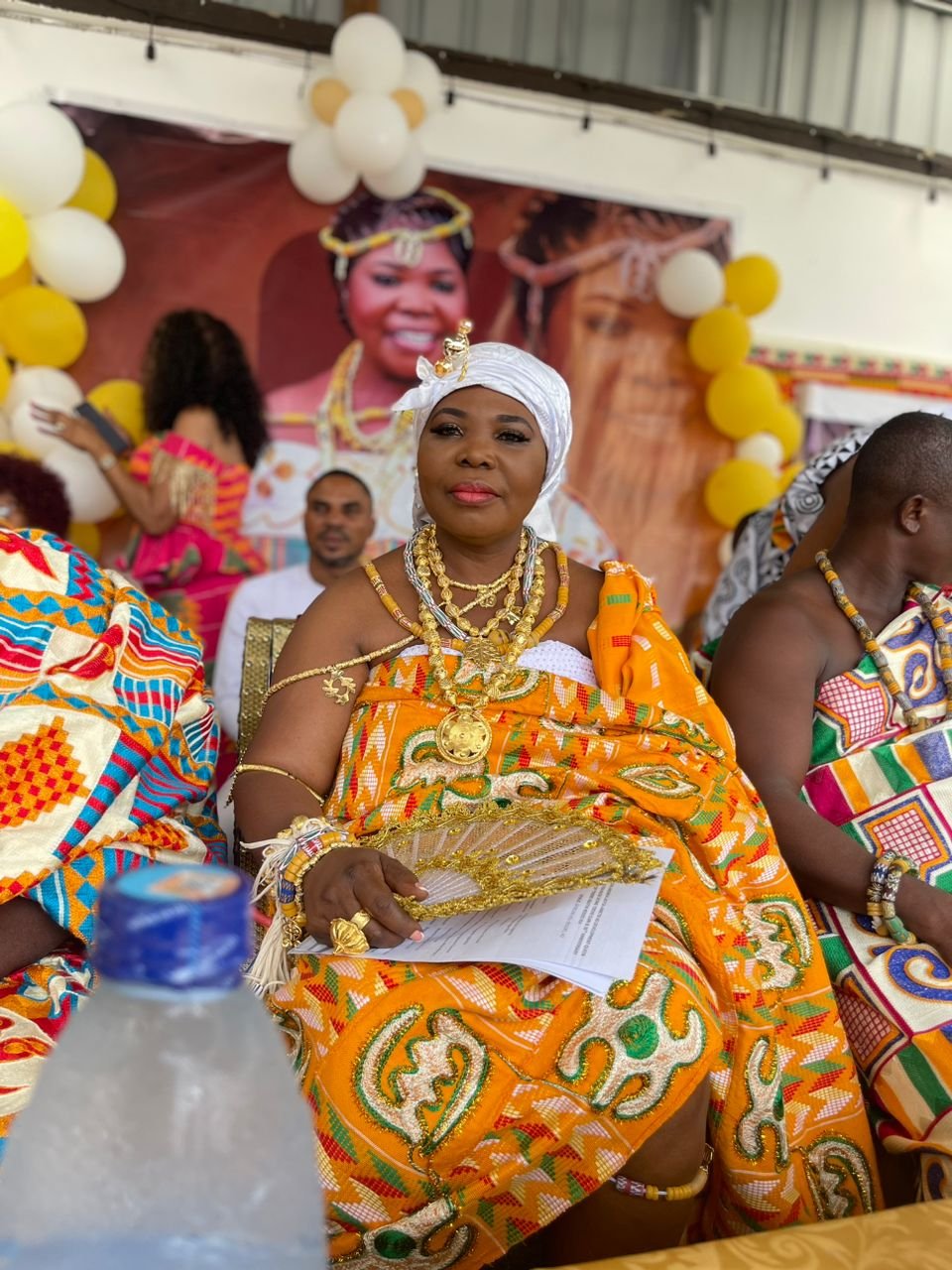
The Dome-Tsevie clan of Abutia-Kloe in the Ho West District of the Volta Region last weekend outdoored Mrs Joycelyn Akorfa Dotse-Ametsi as a Development Queen.
The ceremony which attracted traditional, political and business executives among others had Mr Bernand Mornah of the People’s National Convention Party as the special guest of honour.
Mrs Dotse-Ametsi with the ceremonial name of Mama Woe-Nenyo I, was tasked with liaising and spearheading development projects and educational reforms among others.
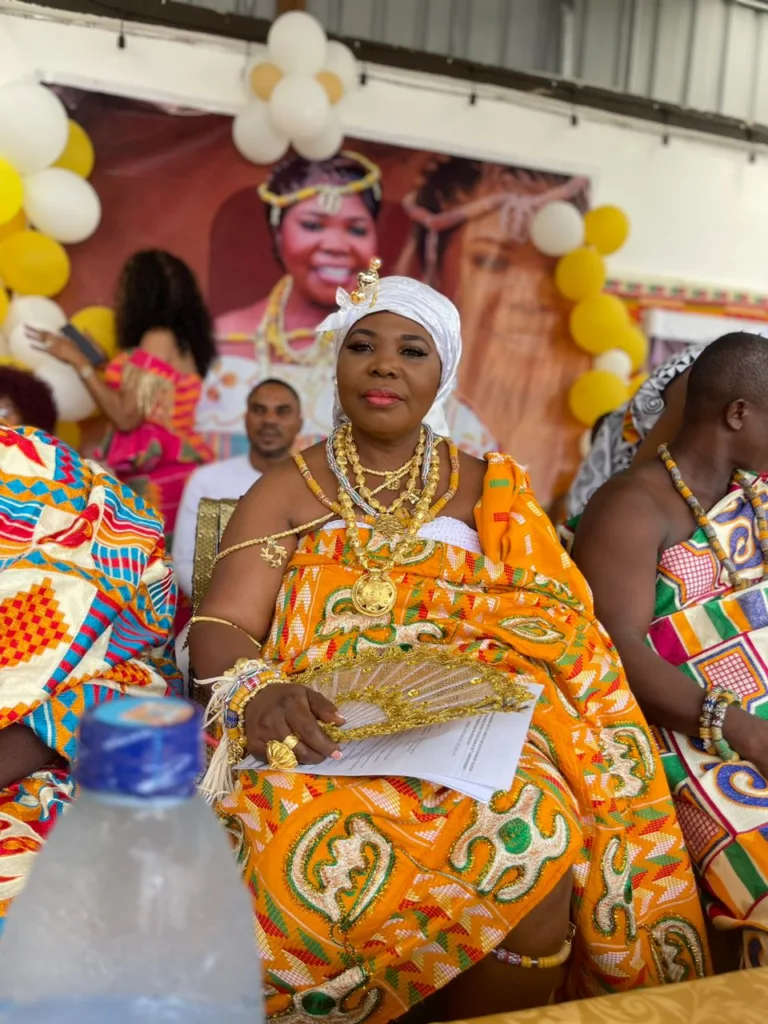

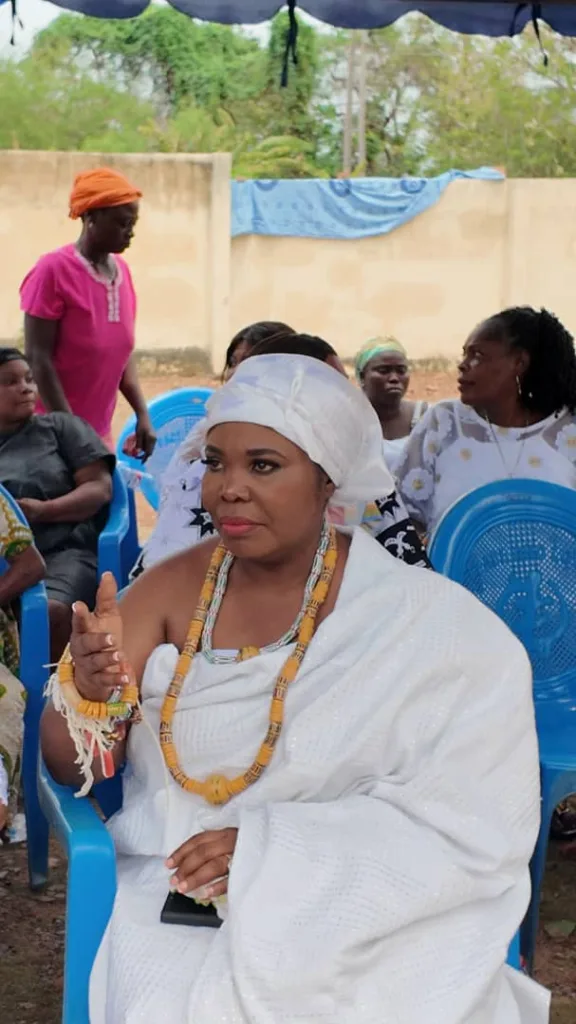

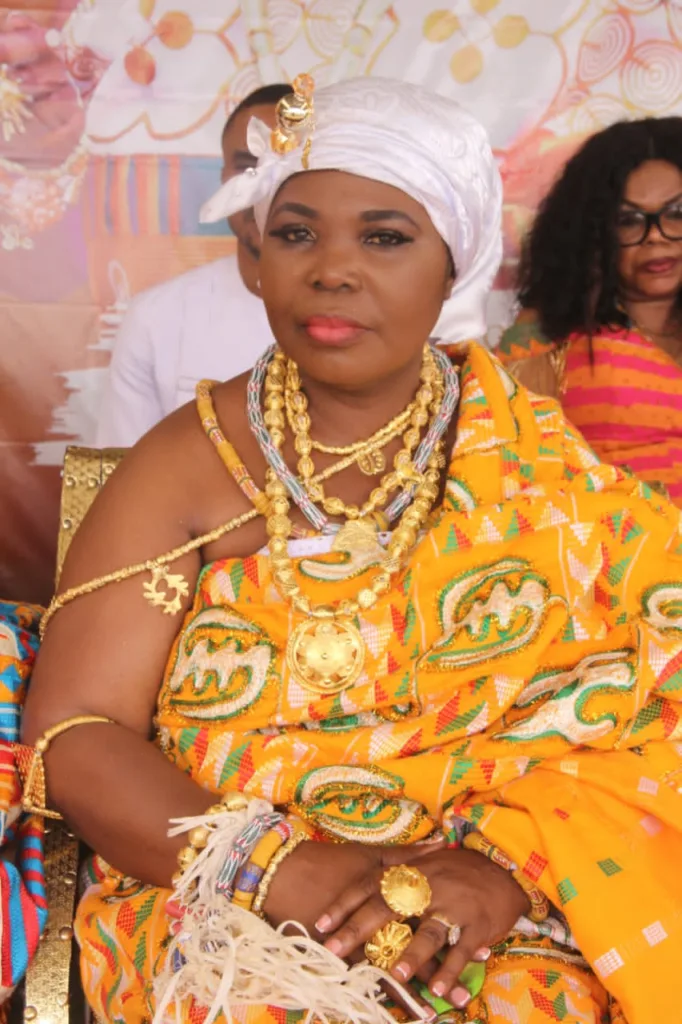

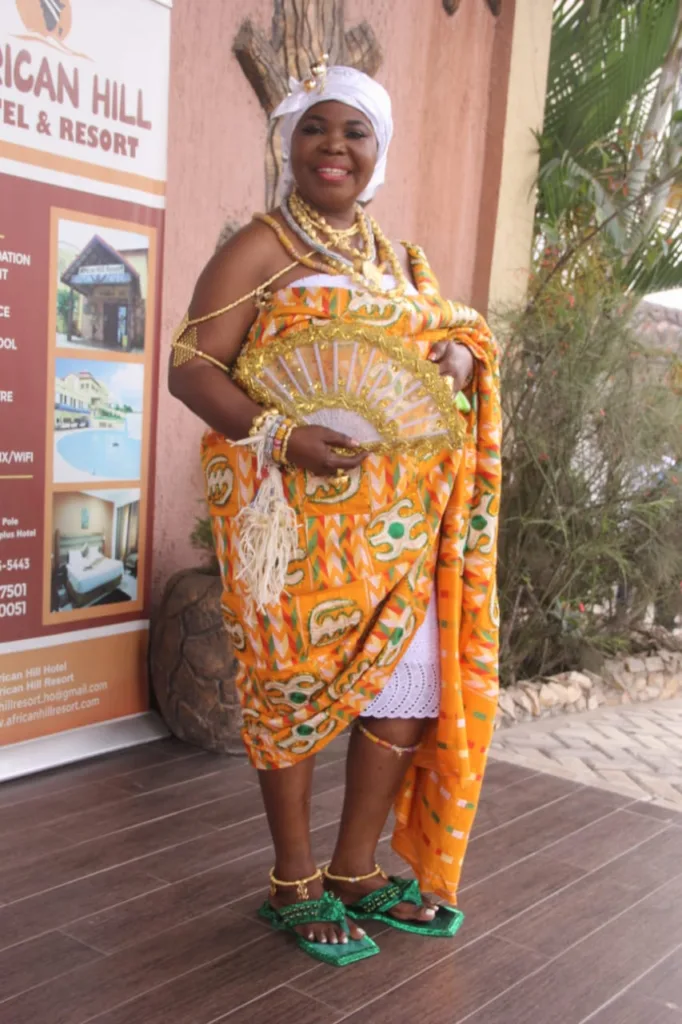

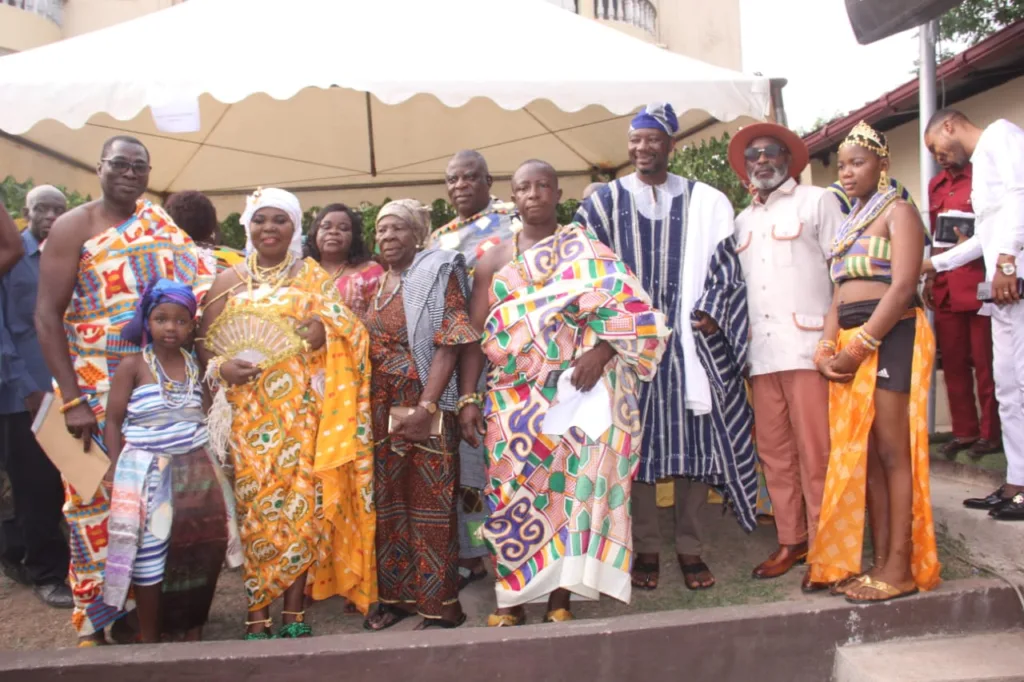

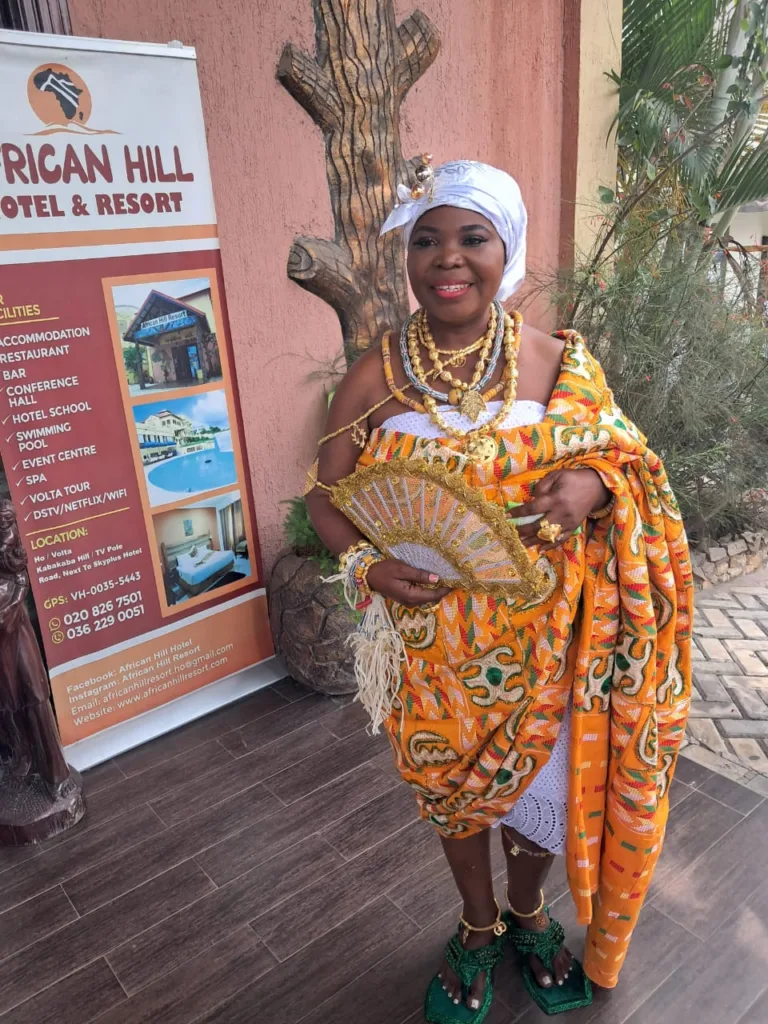
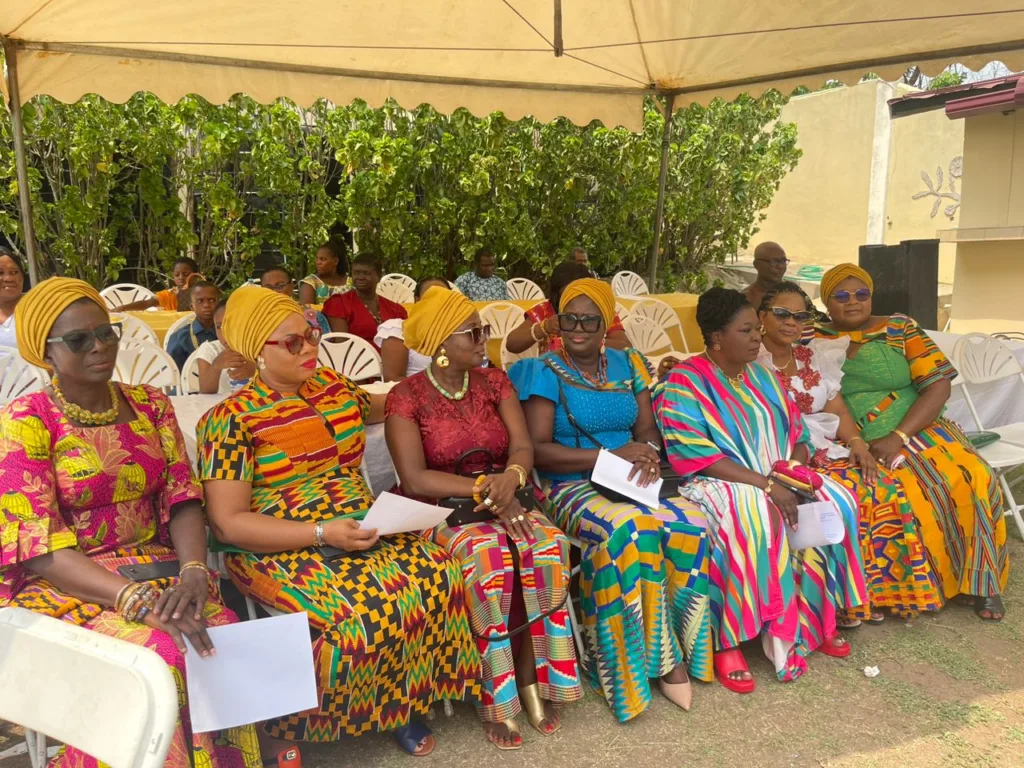
The ceremony also coincided with the 30 years anniversary of the death of Torgbe Abutia Kodzo XVI (ex-President of the Volta Regional House of Chiefs) who happened to be her father.
Mama Woe-Nanyo I promised to adhere to the promise and expectations her clan has in her and not depart from the honour and respect her father radiated during his reign.

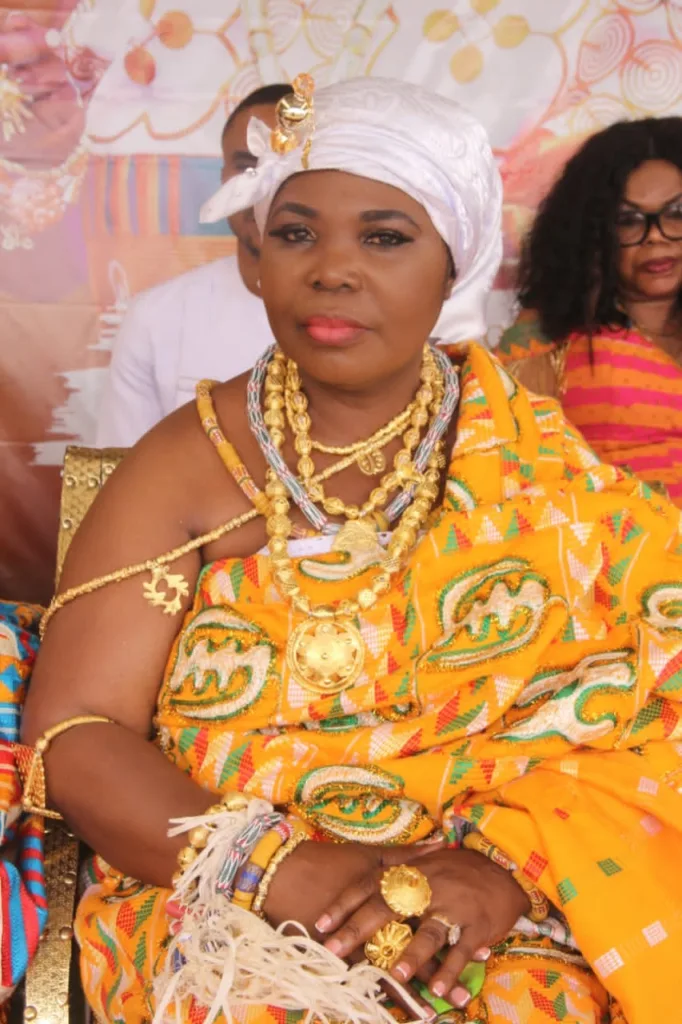
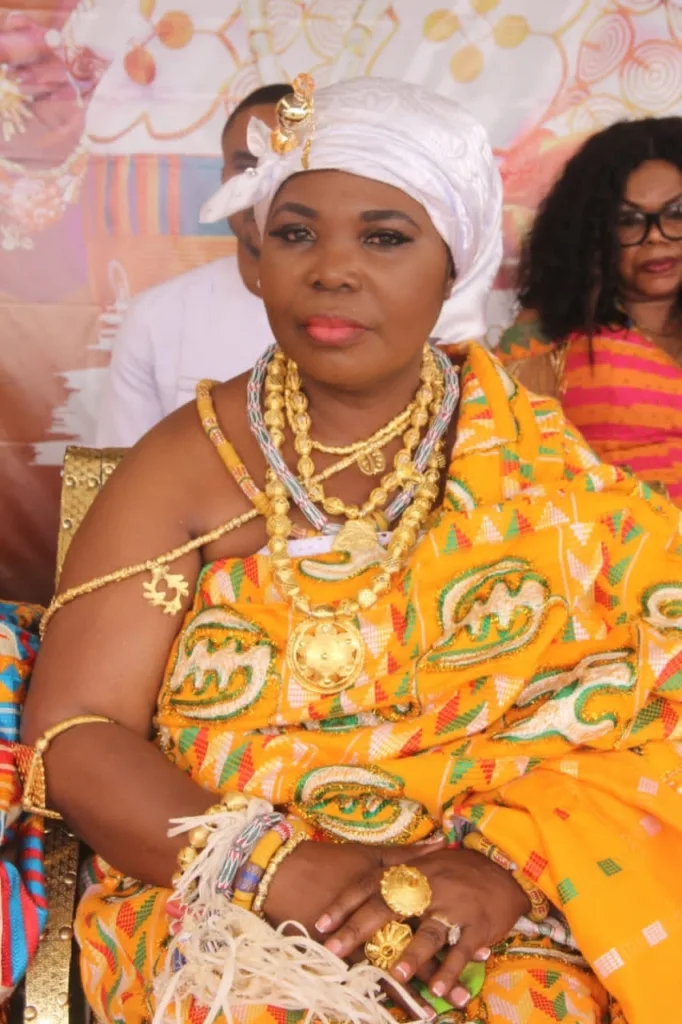
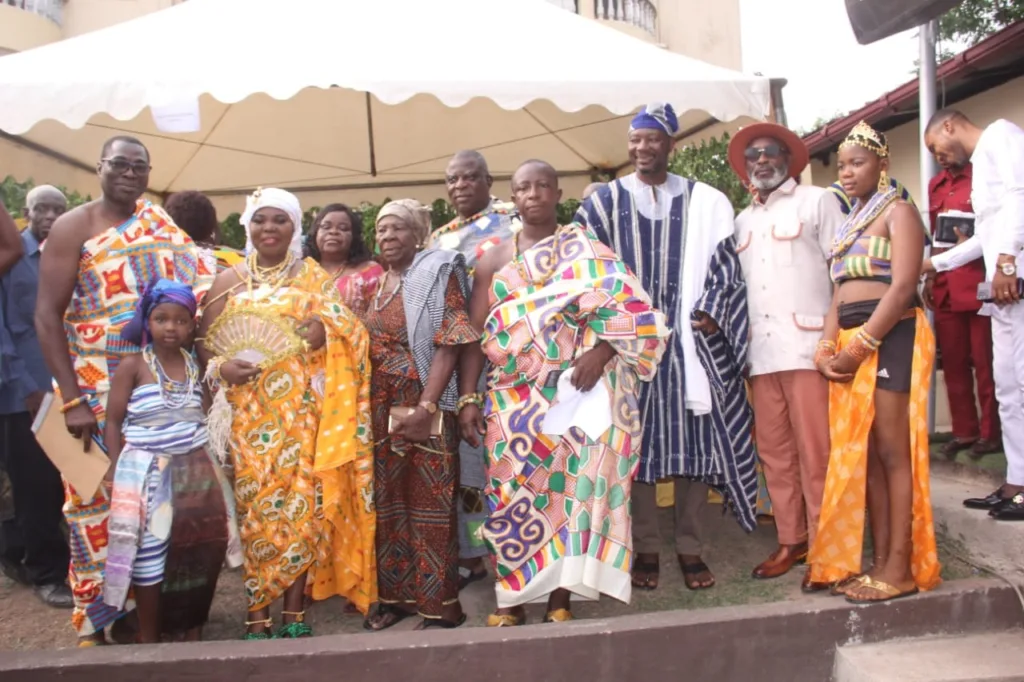

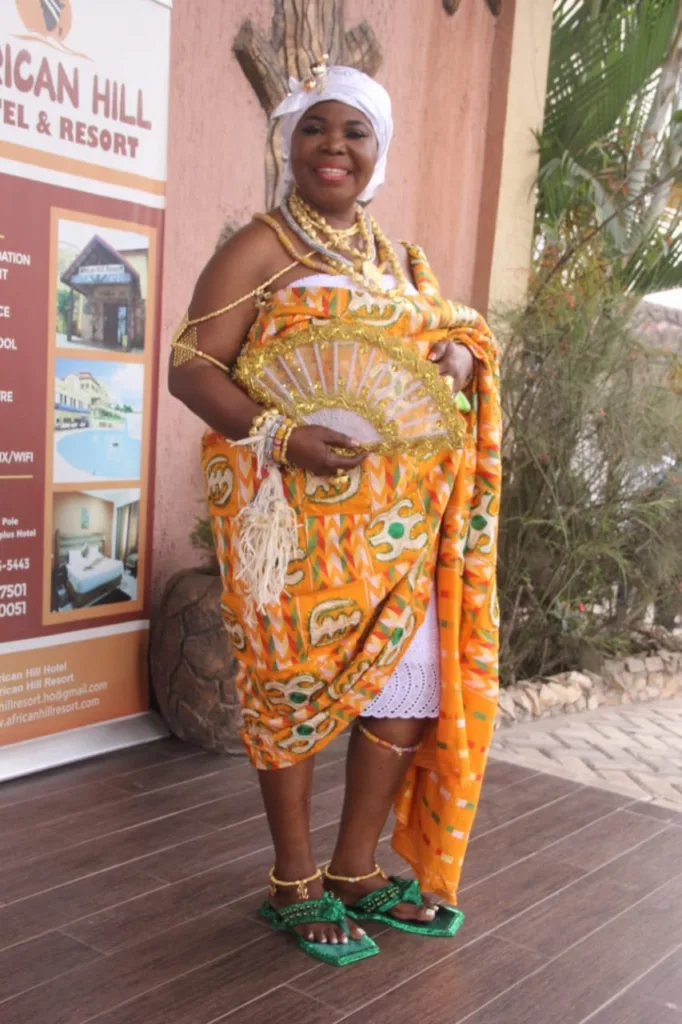


She called for the various clans of Abutia-Kloe to come together for the rapid development of Kloe and the Abutia Traditional Council.
News
The Golden Gift of the Savannah: The untold story of Shea Nut and Shea Butter
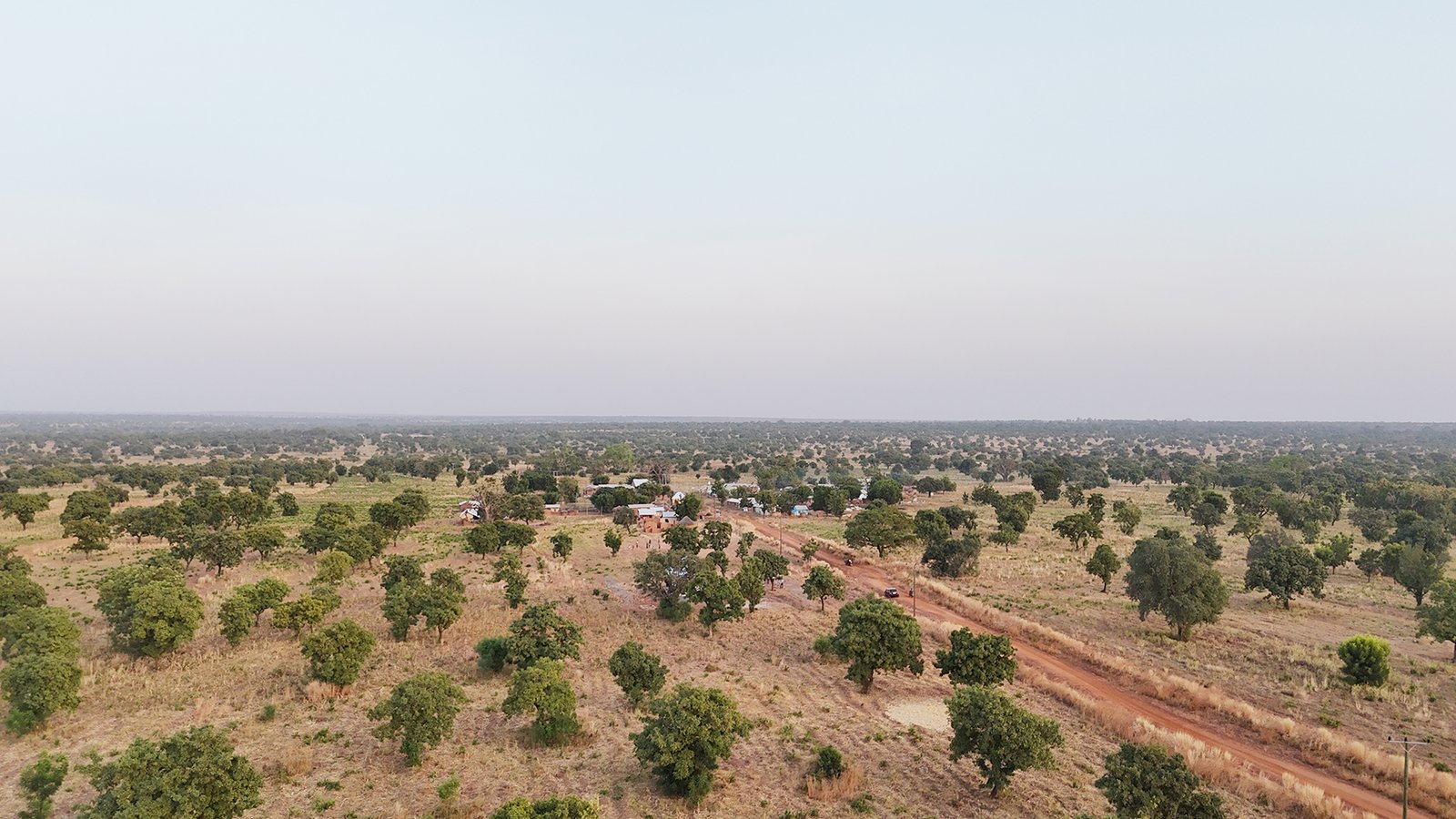
In the vast Savannah of Northern Ghana, where the sun ‘kisses’ the earth stands a tree revered for its economic and cultural significance – the shea tree.
For centuries, the shea nut plucked from this resilient tree, has been the lifeblood of countless women and communities, shaping economies, traditions, and futures across the northern regions of Ghana.
To many women, shea butter is not merely an ingredient in cosmetics and skincare.
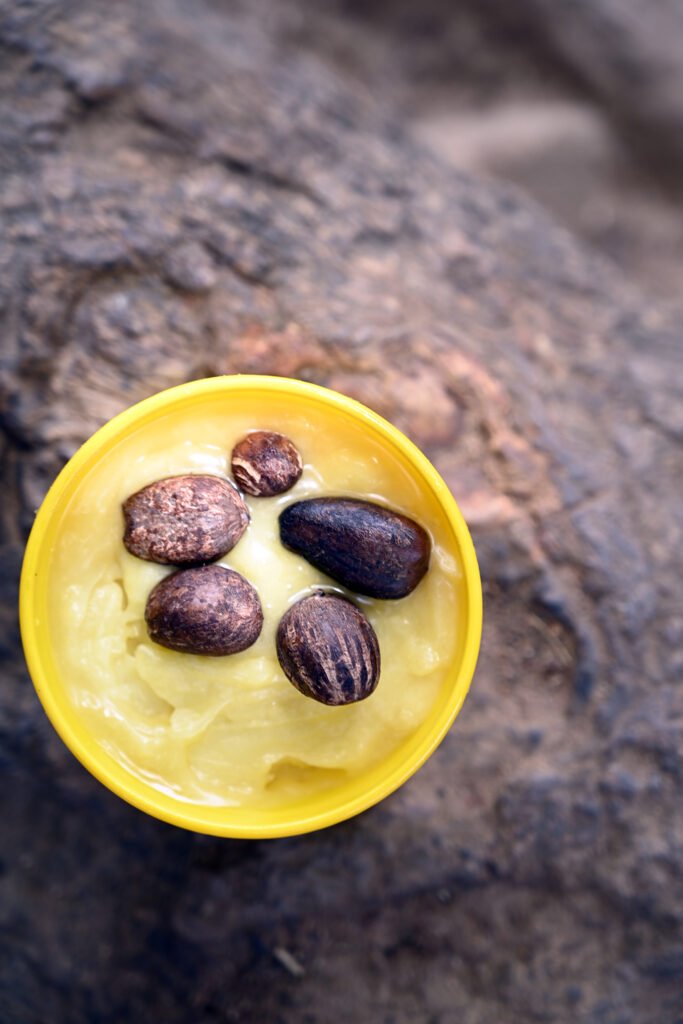
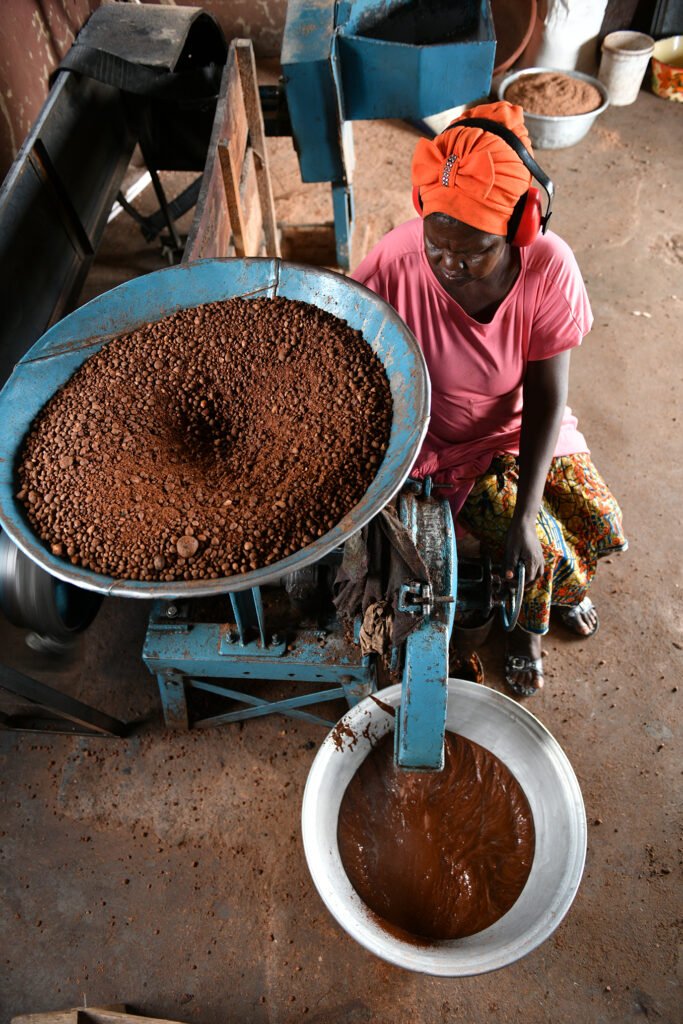
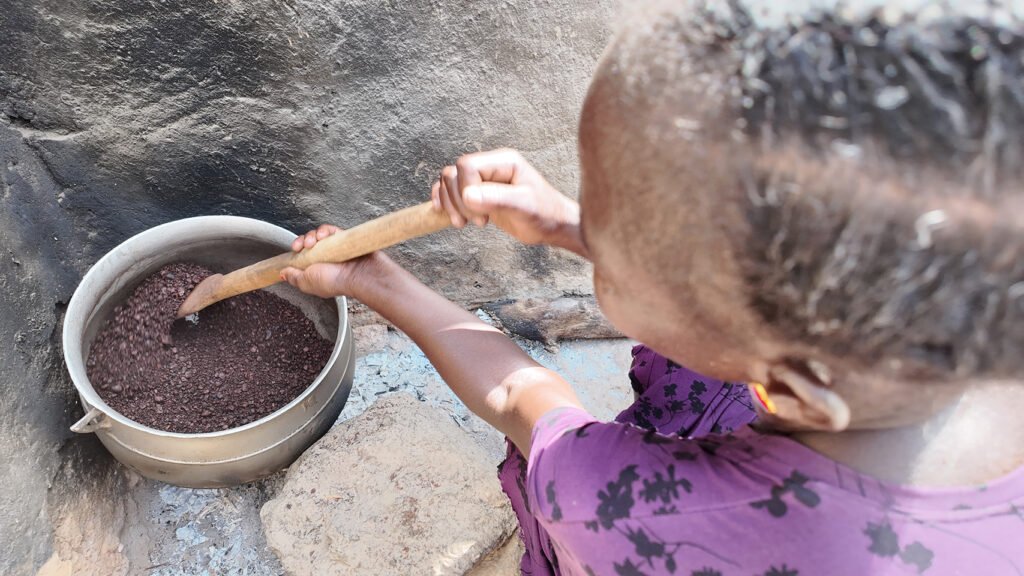
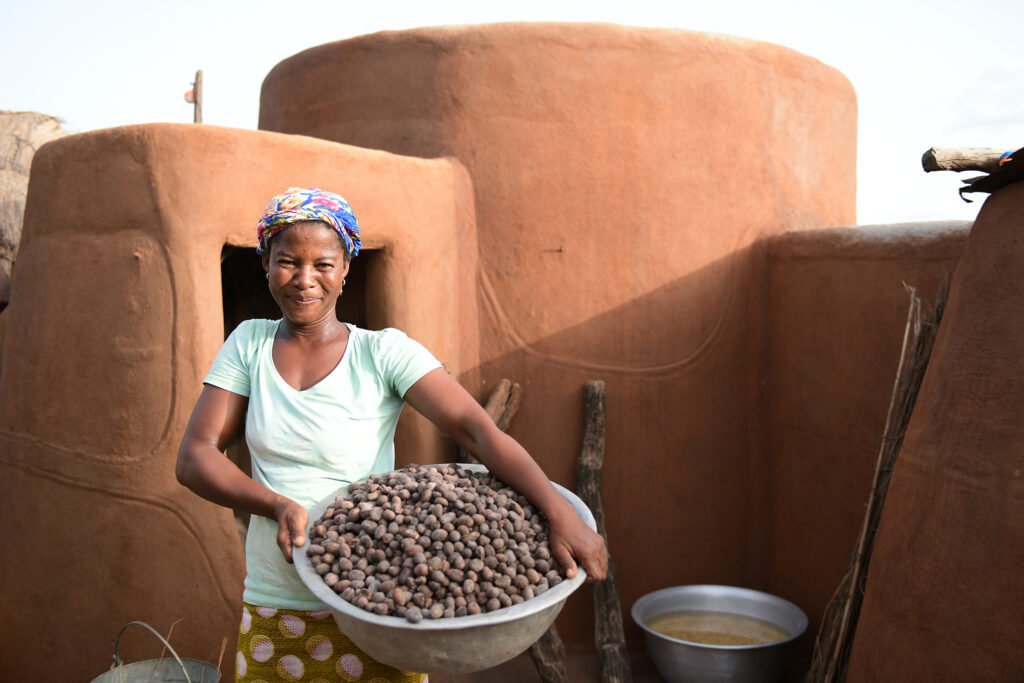
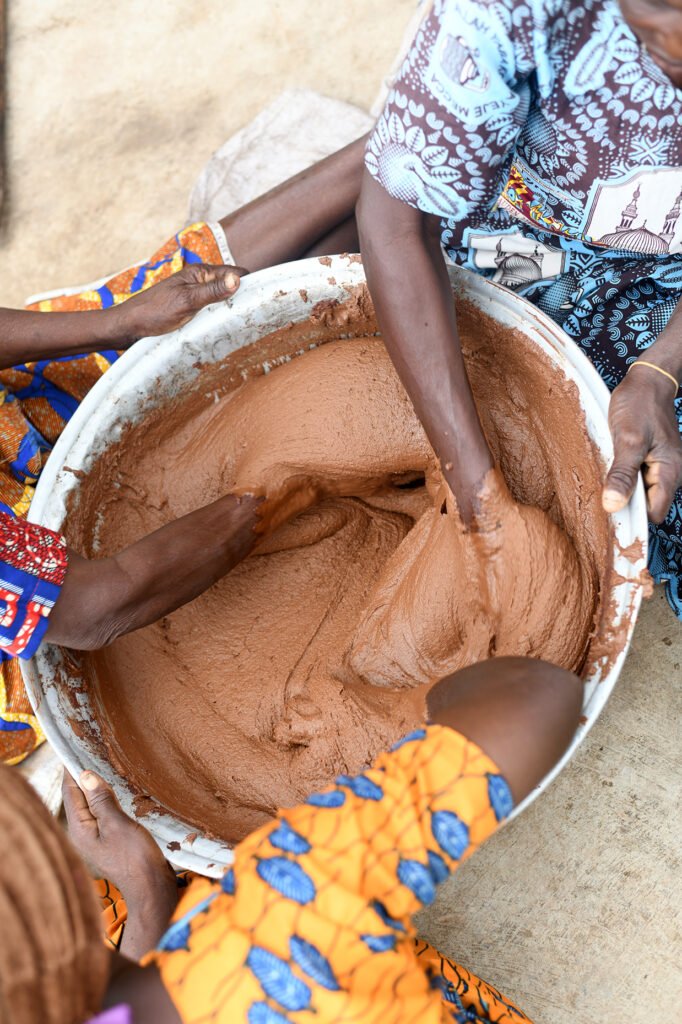
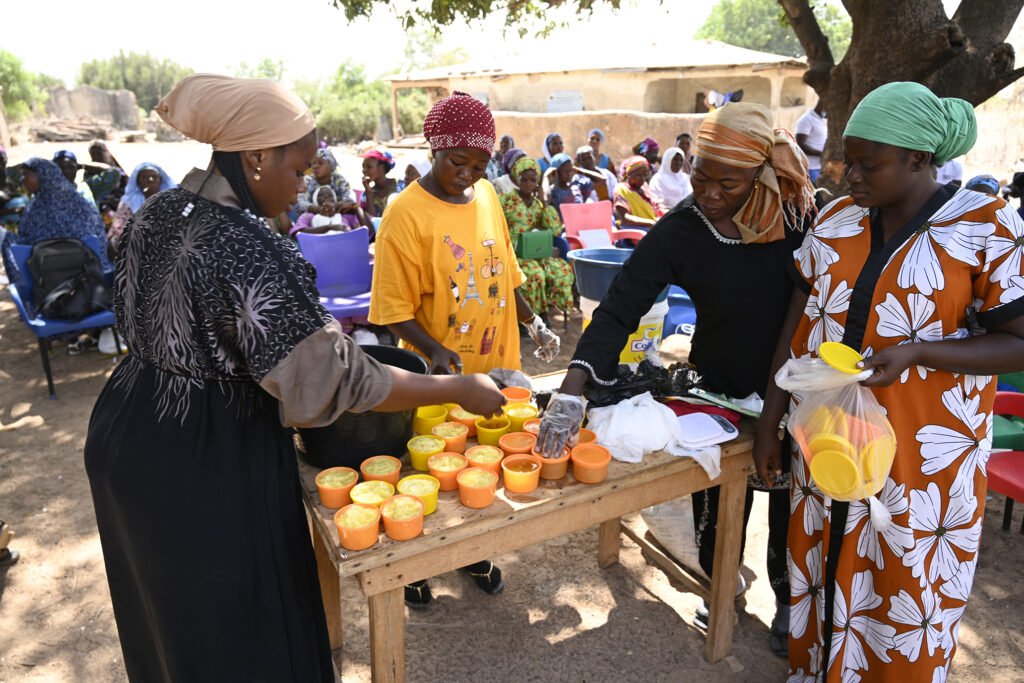
It is a symbol of resilience and economic empowerment. This golden treasure provides a sustainable income for women who painstakingly gather, dry, and process the nuts into a rich butter renowned worldwide for its healing and moisturizing properties.
Beyond its nuts, the shea tree produces a sweet, edible fruit packed with vitamins and nutrients. Its pulp is an excellent source of vitamin C, fiber, and antioxidants, which boost immunity, aid digestion, and promote overall health.
The fruit, often consumed fresh, serves as an essential source of nourishment for rural communities.
However, the journey from shea nut to shea butter is a laborious process requiring skill, patience, and sheer determination.
Women venture into the wild, walk long distances to collect fallen shea nuts.
After gathering, the nuts are boiled, sun-dried, and cracked open to reveal the kernels. These kernels are then roasted, grinded, and kneaded by hand until the oil separates from the solids, forming the smooth, fragrant butter which is now a staple in beauty and pharmaceutical industries, globally.
Shea butter is not the only valuable product derived from this remarkable tree. The shea nut also yields a highly nutritious cooking oil used traditionally in West African cuisine.
Rich in healthy fats, it promotes heart health and serves as a healthier alternative to palm oil and other cooking oils.
As global interest in natural and sustainable products grows, the demand for shea butter has surged.
Major cosmetic brands have embraced it as a key ingredient in lotions, hair products, and medicinal ointments, thanks to its high concentrations of vitamins A and E and anti-inflammatory properties.
Additionally, the food industry now recognises shea butter as a viable alternative to cocoa butter in chocolate production, further expanding its market value.
Yet, despite its growing international appeal, the shea industry faces significant challenges.
Climate change threatens the sustainability of shea trees, while middlemen and unfair pricing structures often limit the earnings of the women who produce the butter.
However, initiatives promoting fair trade, value addition, and sustainable harvesting practices offer hope for better economic returns for shea producers.
Organisations and cooperatives are working tirelessly to protect the shea tree and enhance the livelihoods of shea butter producers.
By introducing modern processing techniques, offering training programmes, and securing fair trade agreements, these efforts are ensuring that the legacy of shea butter continues to benefit local communities for generations to come.
Maria Johana Yuorpor, one of the women leading this transformation is a dedicated shea butter processor. For over a decade, she has championed quality production while equipping women with the skills to refine and add value to this ‘women’s gold.’
Maria’s journey into the shea butter industry was not one of mere chance but of deep-rooted passion and an unyielding commitment to uplift her community.
Growing up in a region where shea butter was a staple in homes used for cooking, skincare, and medicinal purposes, she witnessed firsthand its potential as a tool for economic empowerment.
Determined to make a difference, she immersed herself in intensive research and training, perfecting her craft to meet international standards.
Over the years, her expertise and commitment to quality production have earned her local and international recognition, shining a spotlight on Upper West shea butter.
According to Maria, the best shea butter comes from the Upper West Region due to the naturally rich and unpolluted environment in which shea trees flourish.
“The climate and soil here give our shea nuts a unique richness, which translates into high-quality butter with superior texture and moisturizing properties as well as the best way of processing it,” she explains.
Maria said, said when she begun understanding the importance of value addition, she started training women in her community on advanced processing techniques, including refining, packaging, and product diversification.
“Today, many of my trainees have expanded beyond producing raw shea butter to crafting soaps, body creams, and essential oils, all tailored for export markets”, she added.
To further enhance the shea industry and support women entrepreneurs, the Kosmos Innovation Center (KIC) among many organisations has stepped in with training and funding opportunities.
Mrs. Mercy Tuffour, Gender and Safeguarding Specialist in an interview said, KIC through their initiatives were training women on modern techniques in product formulation, branding, and market access, allowing them to elevate their shea-based businesses.
She emphasised the significance of these interventions: “We are committed to equipping women with the skills and resources needed to create high quality shea products that can compete in both local and international markets.
By adding value to raw shea butter, these women are transforming their livelihoods and securing better financial futures, where Northern Ghana becomes the hub of premium shea butter exports, driven by women entrepreneurs, she added.
She also advocated increased investment in shea butter processing facilities and seeks partnerships with global skincare and cosmetic brands to highlight Ghana’s superior shea butter.
As Maria Johana Yuorpor continues her mission, her story serves as an inspiration to many – proof that with passion, knowledge, and resilience, local resources can be transformed into global opportunities, changing lives one shea nut at a time.
Story/Photos from Geoffrey Buta, Nyoli, Upper West








